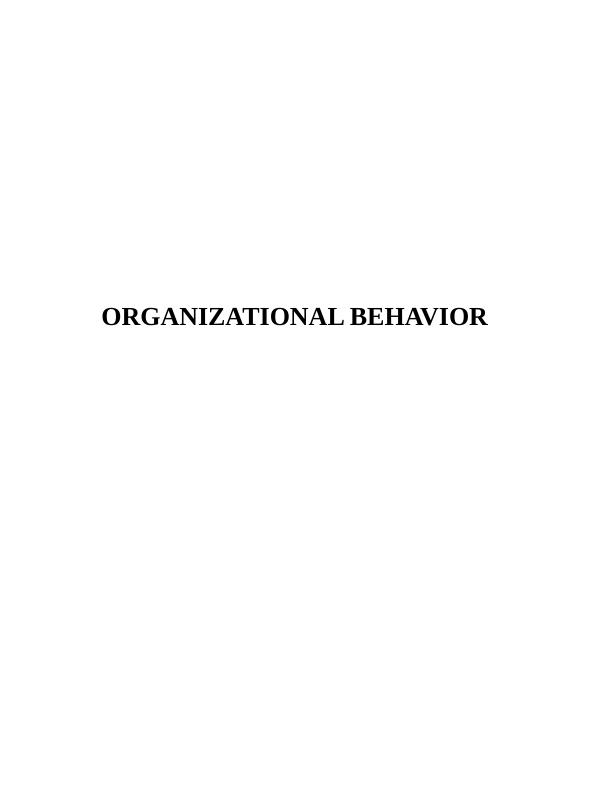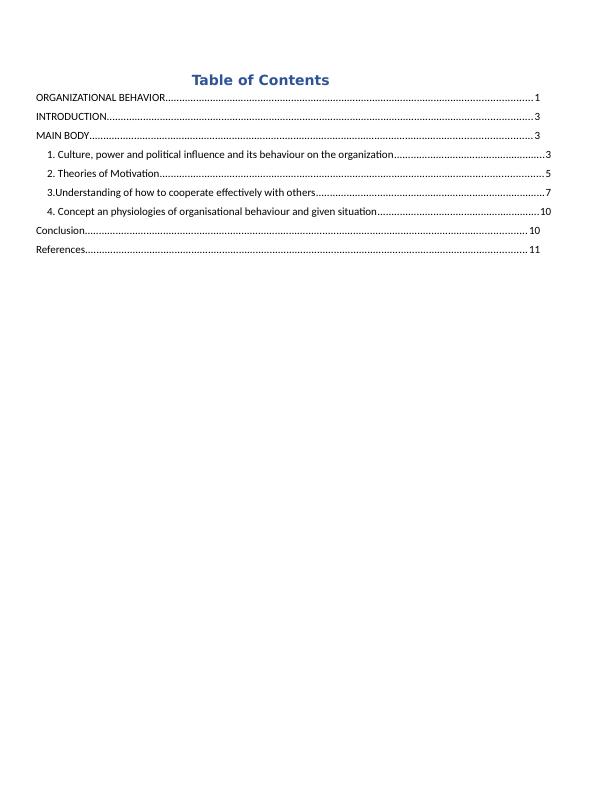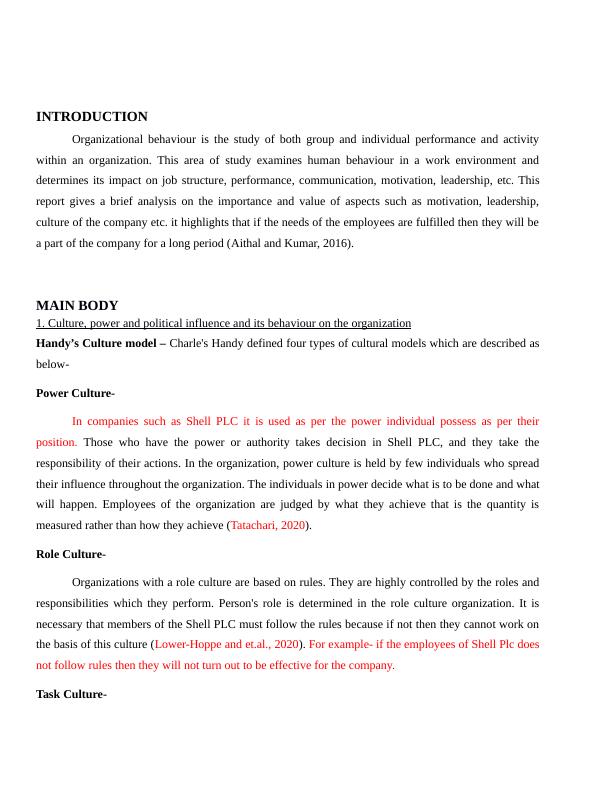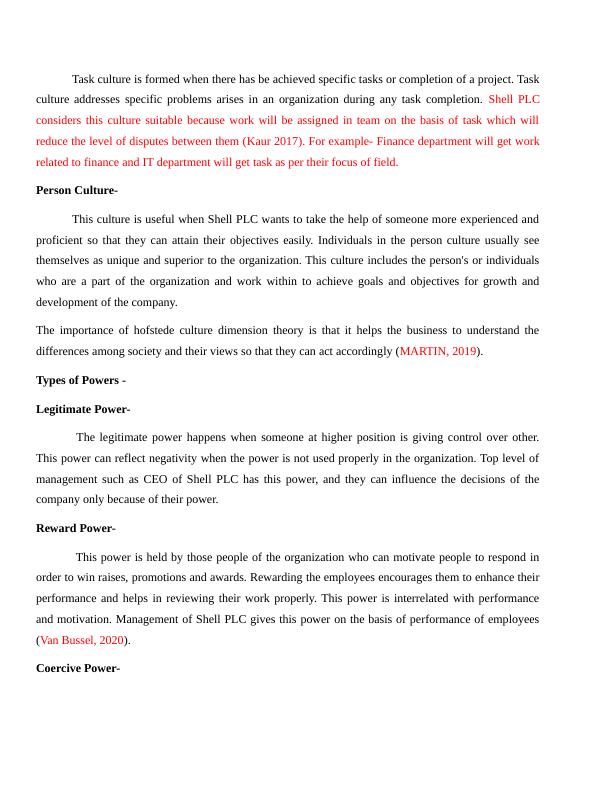Organizational Behavior: Culture, Power, and Motivation
13 Pages3926 Words43 Views
Added on 2023-01-03
About This Document
This report explores the importance of organizational behavior in a work environment. It discusses the impact of culture, power, and motivation on the organization. It also covers different cultural models, types of power, theories of motivation, and effective cooperation in teams.
Organizational Behavior: Culture, Power, and Motivation
Added on 2023-01-03
ShareRelated Documents
End of preview
Want to access all the pages? Upload your documents or become a member.
Organizational Behavior: Culture, Power, and Motivation
|13
|3298
|331
Impact of Organisational Culture, Politics, and Power on Individual and Team
|12
|4570
|4
Organizational Behaviour: Analysis of Shell Plc's Culture, Politics, Power, Motivation and Team Development Theories
|13
|4065
|169
Organizational Behaviour: Influence of Culture, Politics, and Power
|13
|3598
|29
The Influence Culture, Politics and Power on Organization
|12
|3887
|226
What makes an effective team?
|13
|4168
|336




